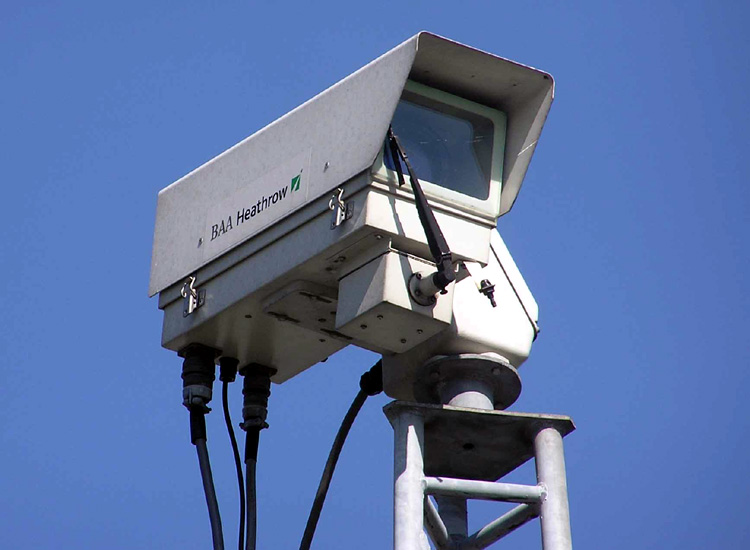
Do you have a right to privacy from video cameras in a public place?
Video surveillance laws vary from state to state. There are no Federal laws that prohibit hidden video surveillance also known as Closed Circuit TV (CCTV) in public or in the workplace. Most states do not prohibit it either. Only California, New York, and Rhode Island prohibit hidden video cameras in places where people expect complete privacy. These places include locker rooms, bathrooms and other places where people undress. Of the remaining states, only Connecticut and Delaware require businesses to notify employees and customers of video cameras in bathrooms and changing rooms. When a public notice advising that video camera are being used is posted in a business, all rights to privacy are relinquished.
Most people readily accept video surveillance of public places because it’s proven to reduce crime. People are generally in favor of it in elevators, parking garages, tunnels, stairwells and other public places. Because they are somewhat hidden these are places where crimes may be likely. Surveillance video is often undeniable evidence when used to prove guilt in a court of law.
Video Surveillance Laws
One federal law that comes closest to dealing with this issue is the Fourth Amendment to the United States Constitution. It is part of the Bill of Rights and guards against unreasonable searches and seizures. It also requires any search warrants to be sanctioned by the court which must decide there is probable cause of a crime.
But according to Angelo Pompano of the New Haven Teachers Institute, a division of Yale University, “The United States Supreme Court has decided in a long line of cases, most notably in Katz v. United States 389 U.S. 347, 88 S.CT.507 (1967), that there is no expectation of privacy in a public place.”
In another Supreme Court case, Justice Potter Stewart wrote for the majority, “The Fourth Amendment protects people, not places.” So what a person knowingly exposes to the public is not a subject to Fourth Amendment protection. But what he seeks to preserve as private, even in an area accessible to the public, may be constitutionally protected.
While the right of privacy from unauthorized videotaping is not covered by the Constitution, states can pass their own laws on the issue. Florida, for instance, now has a law which attaches criminal penalties for secretly videotaping people where they have an expectation of privacy such as in a changing room or bathroom. However, it does not protect people in public places like a beach.
Home surveillance is easier than ever these days. You can set up home surveillance system that you monitor from your cellphone. In fact, this could be a great business. Set up covert cameras in a home and link them to a cell phone. Here’s one system you might consider.
Video surveillance laws continue to evolve in this relatively new area. Video surveillance in the U.S. is growing partly in response to 9/11. But it is not nearly as pervasive in the U.S. as in the UK. There are reportedly more cameras per person in the UK than in any other country in the world.






Can I show a surveillance tape about something th hat happened at work online?
You will need to research the laws in your state. This varies by state. Do some Google searches.
Does a person have a reasonable expectation of privacy inside their garage with the garage door open where they are viewable from the street or neighbors house?
If you suffer loss when surveillance is used to intimidate, extort, blackmail, it’s a felony crime. One example is these windshield mounted dash cameras used by corporations in vans to record drivers for disciplinary reasons and termination of jobs. Most states find any obstruction of the windshield a safety issue but laws are ignored because corporations have teams of lawyers who feel peonage slaves have no rights to privacy and they use these audio and video surveillances to intimidate and blackmail employees. The USA is becoming more like North Korea with forced compliance and loss of civil rights.
Recently my neighbor put in a video camera and it actually faces my door we live in apartment complex or doors faces each other what are my rights because my apartment complex manager says he has the right to put it up but I also have a house full of girls when I open my door he can videotape in my house he does not have my permission I do not like the idea tear it also 10 videotape the two residents that live underneath us all their comings and goingsdoes anybody know what I can do about this because the old man isNot going to take it down I kind of think he’s a pedophile.
Can you keep your door closed so he can’t see inside? You might want to call the local police and just ask them what they think.
My back neighbor recently put 2cameras up,above the second story window, under eaves of roof. One is pointed at our swimming pool, over an 8 ft fence, the other is pointed at neighbors swimming pool, over 8ft fence. There is only about say 20 ft stretch o yard till fence, and the windows up above are receded about 8 to 10 ft inside edge if house. We tried to talk to camera people, we got cussed at fiercely. We seem to be getting no where near forward on this problem. Talked to HOA, local police, lots of other people, they all agree that it is creepy, not the cops, everybody else tho. No one can find anything illegal about a camera recording my pool, all people in or around pool, all people chillin on patio,…….24 hours a day,7 days a week, 365 days a year… ~ I kinda feel someone in neighborhood possibly mite “ postal” I would Love to hear feedback from all over the world. Thank you. Scott n Laurie Tomlinson
What did you mean when you said you talked to camera people? Did you mean the people who installed the cameras?
Talk to your other neighbor who is also being spied on.
You might also contact your state Attorney General and see what he/she says.
I would be tempted to up some cameras of my own aimed at his back yard, front yard, etc. But before you do that, give him notice of your plans. That may convince him. But if he did not take the hint, it could lead to an escalating battle.
Keep us posted on what happens next. Good luck.
My daughter works in a Medical Marijuana Office that people come to get advice and information on and see a Dr to get a legal license for CBD. The owner just put 2 cameras in. 1 behind her desk and 1 across from her desk. Seems to me that Hipa would be violated when discussing with potential patients about their medical issues. It is Video and Audio. Is this legal in the state of Florida?